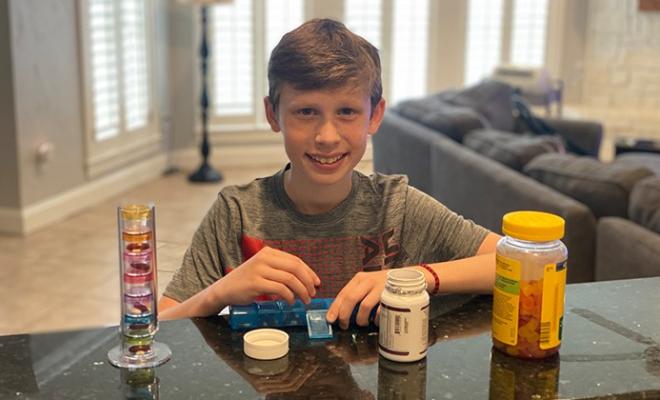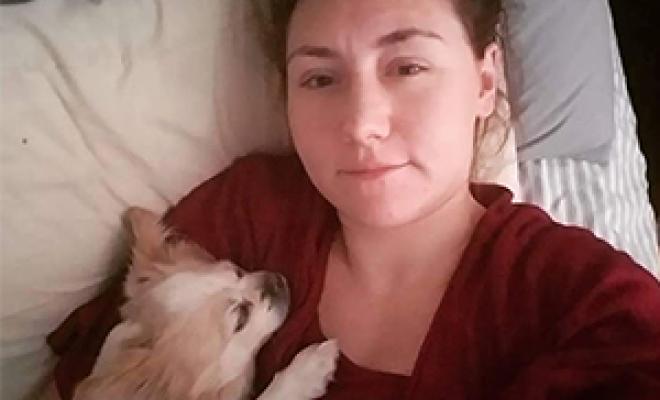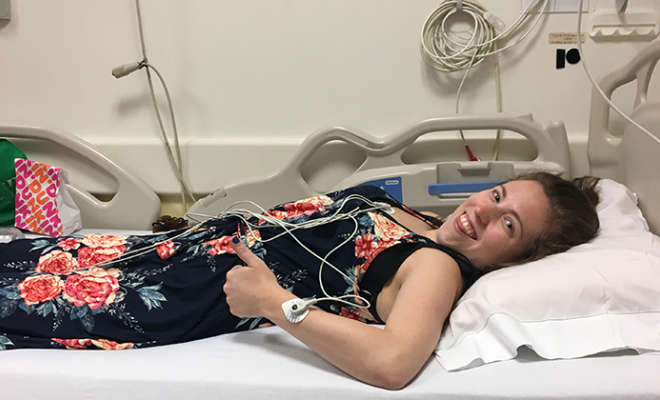Taking Trikafta is kind of like deciding upon the blue pill or the red pill in the movie, “The Matrix.” Remember that movie? Once you take Trikafta and know what it holds for you, there's no going back. It can be a bit of a jarring experience if you have to go off of it because of side effects. Here's what happened to me, and what I've learned.
First, I have to be honest with you. I never thought I would want to take Trikafta. My health has always been fairly stable and the financial cost of it seemed too overwhelming for me, so I figured I would just opt out. Then I heard that it could help with inflammatory markers and that piqued my interest. It turns out aging with cystic fibrosis can be a bit painful, especially when training to run a half-marathon. Body aches and ribs going out from coughing were a constant for me in 2019. So, I went for it.
The first 110 days of being on Trikafta were marvelous. I had so much energy! Instead of needing eight or nine hours of sleep or spending sleepless nights tossing and turning because of coughing or body aches, I woke up before my alarm clock most days at 5 a.m. feeling wide awake and well rested after only six hours of sleep. I never coughed, even after a treatment, and I could actually enjoy my morning and saunter around with coffee for a few hours before even having to do a treatment. I used to sing for events or in church, but I had stopped because I became too anxious about not knowing if I would cough or not. Five days after being on Trikafta, I could sing again like I used to -- clear voice and no coughing. It was wonderful.
And then it wasn't.
At the end of May 2020, my liver enzymes spiked to 2.8 bilirubin (prior to taking Trikafta in January, my liver enzymes were at 1.1 bilirubin). My doctors told me to stop taking Trikafta for a month so my body could readjust, and we could baby-step it back to the full dose. I was heartbroken. It felt like hope had been dangled in front of me and then taken away with the snap of a finger.
I've spent the last decade of my life keeping my health on track with healthy daily habits, but the lack of Trikafta was a shock to my system.
The coughing started up again within five days of stopping Trikafta. I spent most of that month resting and napping when I wasn't working because my body was so worn out from trying to go back to my old normal. If you've ever been on antidepressants and experienced the regulation period, where your body takes four to six weeks to get used to the medication, then you can understand what this was like. Instead of getting used to medication, my body was trying to figure out how to function without the medicine that had provided such a dramatic energy boost. It was trippy. And such a letdown.
In July, I was able to start on Trikafta again, and as I write this, I am on my second round of 106 days of this medication. It's going much better, so far.
However, it was during that month of life without Trikafta, that I realized something pretty important. I leave you today with this truth: There's never a guarantee that any medication is going to work.
I've got to be diligent with my health, and this goes beyond just doing the basics of CF management. Maintaining a weekly rest day so I can keep doing all the things I love to do as a leadership coach, speaker, author, and entrepreneur is a must. Eating real food, drinking enough water, exercising at least three times a week, and doing what I can to keep my mind and my body strong is a must. I can't get lazy with these habits just because of a life-changing medication like Trikafta. They are just as important as everything else I do to keep myself healthy and strong on this hope-filled journey of life with cystic fibrosis.
If you need some more encouragement on maintaining your care routine, I invite you to listen to this podcast episode, “The Ups and Downs of Life on Trikafta.” May it inspire you and give you hope on your own health journey today.
Interested in sharing your story? The CF Community Blog wants to hear from you.






